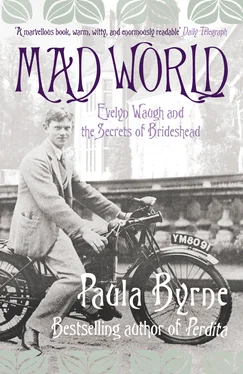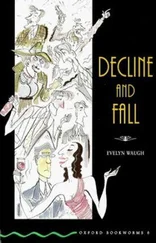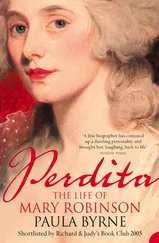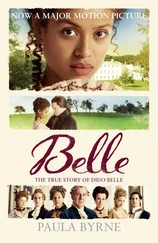The quotation is the opening line of a poem called ‘Alma Mater’ by Arthur Quiller-Couch. Known as ‘Q’, he was the archetypal Oxford man of letters – who by Waugh’s time had, with great disloyalty, seated himself in the King Edward VII Chair of English Literature at Cambridge. A typical stanza from ‘Alma Mater’ reads:
Once, my dear – but the world was young then –
Magdalen elms and Trinity limes –
Lissom the blades and the backs that swung then,
Eight good men in the good old times –
Careless we, and the chorus flung then
Under St Mary’s chimes!
Though Evelyn was not the lissom type that might take to the river in a rowing eight, he shared Q’s rosy-tinted vision. Oxford was ‘mayonnaise and punts and cider cup all day long’. Charles Ryder’s voice is his own: ‘Oxford, in those days, was still a city of aquatint … her autumnal mists, her grey springtime, and the rare glory of her summer days … when the chestnut was in flower and the bells rang out high and clear over her gables and cupolas, exhaled the soft vapours of a thousand years of learning.’ Late in life, revising Brideshead for the last time, Waugh changed that last phrase to ‘exhaled the soft airs of centuries of youth’. Oxford ultimately stood for youth more than learning.
What would he have looked like to his fellow undergraduates? He was an attractive young man, short and slim with reddish, wavy hair, a sensuous mouth and a penetrating gaze. He had large hands, which he called craftsman hands. A wonderful hearty laugh, nearly an octave lower than his speaking voice. Those who knew him at this time testified to his peculiar charm, something that had not been nearly so apparent at Lancing. For some he was ‘faun-like’ – more an allusion to his light-footed energy than his diminutive stature. Despite the fierceness of his blue eyes and his slight swagger, there was an engaging air of vulnerability about him. Nevertheless, he could be impatient and cruel, especially to those less clever. He was not a kind young man, but he was generous and quick to see kindness in others.
For his first two terms he led a quiet and uneventful life. He claimed that he was content: ‘I have enough friends to keep me from being lonely and not enough to bother me,’ he wrote in a letter, adding that he did little work and dreamed a lot. But in other letters he lamented the lack of congenial friends. He complained of the ones he had met so far, ‘a gloomy scholar from some Grammar school who talked nothing, some aristocratic men who talked winter sports and motor cars’. The highlight of his first term was to buy finely bound editions of Rupert Brooke and A. E. Housman’s haunting homoerotic poetry collection A Shropshire Lad , volumes that he could ill afford. He reported the purchases with relish in letters to his school friend, Tom Driberg.
In his memoir of his early years, self-deprecatingly entitled A Little Learning , Waugh described the first part of his Oxford education as typical of a scholarship freshman from a minor public school. Subdued but happy, he purchased a cigarette box carved with the college arms, learned to smoke a pipe, got drunk for the first time, made a speech at the Union and did just enough work to scrape through his first year exams. ‘But all the time it seemed to me,’ he wrote, ‘that there was a quintessential Oxford which I knew and loved from afar and intended to find.’
He knew that he was in search of something, but he was not quite sure what it was.
In A Little Learning he quoted Q’s line about Oxford’s ‘ secret none can utter ’ once again. ‘It is not given to all her sons either to seek or find this secret,’ he commented, ‘but it was very near the surface in 1922.’ The clear implication is that he was on the brink of being let into the secret of the quintessential Oxford. At this point in his memoir he named one of his contemporaries: ‘Pembroke [College] harboured Hugh Lygon and certain other aristocratic refugees from the examination system.’ Pembroke was a college that had a reputation for welcoming the ‘cream’ of Oxford (rich and thick). Hugh was not the most intellectual of men, but after a period of study in Germany he had duly come up to Oxford. He would hardly have been turned away, given his pedigree.
Evelyn did not care in the least that the place was no meritocracy. Having won his scholarship to Hertford, he was determined to get through his three years with the minimum of work. Like many of his contemporaries, he subscribed to the notion that Oxford was a place ‘simply to grow up in’ rather than somewhere to gain an education or a step into a career path. More than anything, Oxford was the place where you met the friends that would be with you for life. Initially, it must have seemed to Evelyn that he was doomed to stay with the dull, middle-class friends of his first two terms. Glamorous aristocratic boys such as Hugh Lygon and Lord Elmley were as remote as Mars. They belonged to sets that seemed impossible to infiltrate, a world that was exclusive, elegant and composed almost entirely of Old Etonians.
In Oxford lore, 1922 and 1923 would come to be regarded as no ordinary years. When Evelyn came to write his own love poem to Oxford in Brideshead Revisited he was careful to be explicit that Charles Ryder was of this vintage. A revolution was afoot and two men were its instigators: Harold Acton and Brian Howard. Eton had already made them into legendary figures, thanks to the Candle . To begin with, Oxford regarded them as an odd couple: Harold with his tall stooping figure, peculiar gait and abnormally small head, Brian with his swarthy demeanour, slicked back hair, huge dark eyes, and pouting mouth. Flagrantly homosexual, eccentric, worldly and cosmopolitan: Oxford had seen nothing like them since the days of Oscar Wilde. Paradoxically, Acton and Howard themselves considered Wilde effete and second-rate: ‘Old Oscar screwed the last nail in the aesthete’s coffin’ was their view of the matter. They stood for a more robust aestheticism mingled with modernism. They read not Wilde and Swinburne, but Edith Sitwell, James Joyce and T. S. Eliot.
Acton’s mantra was plainly set out: ‘Now that the war was over, those who loved beauty had a mission, many missions. We should combat ugliness; we should create clarity where there was confusion; we should overcome mass indifference; and we should exterminate false prophets.’ In his memoirs, Acton described his group as ‘aesthetic hearties’: ‘There were no lilies and languors about us; on the whole we were pugnacious.’ They despised the very things of which they were so often accused: pretentiousness and affectation. As at Eton, Harold was the undisputed leader, on a mission to re-educate Oxford. But Brian was just as influential and it was sometimes hard to separate them. The two men were regarded as rivals, friends, enemies and ‘almost twins’.
Harold, to the amusement of his friends, stood on his balcony window with a megaphone, through which he recited poems (usually Eliot or Sitwell) to groups passing below in Christ Church Meadow. He painted his rooms in lemon and filled them with Victorian furniture, artificial flowers and wax fruit under bell jars. This love of Victoriana was a kind of retro kitsch, which almost began as a joke, a rebellion against classicism. These boys wanted modernism with an ironic twist.
News of the extraordinary pair spread like wildfire around drab post-war Oxford. Their highly distinctive turns of phrase were repeated at parties. ‘Your etchings are the messes of a miserable masturbator,’ Acton told one young man. Brian Howard remarked to a lovesick boy at a party: ‘My dear … I feel that your fly buttons will burst open any minute and a large pink dirigible emerge, dripping ballast at intervals.’
Читать дальше












